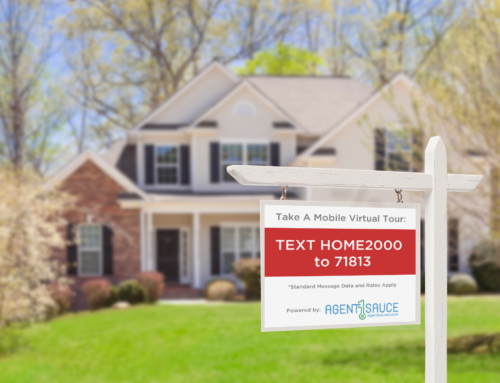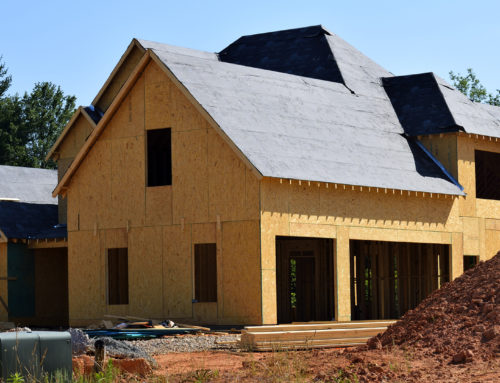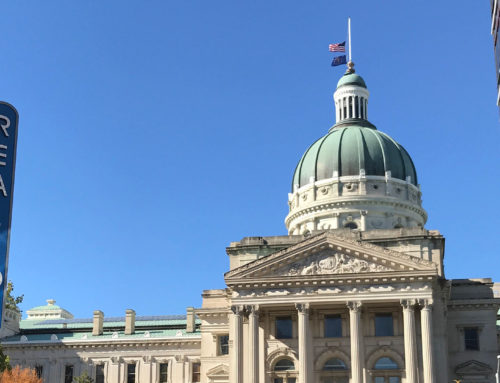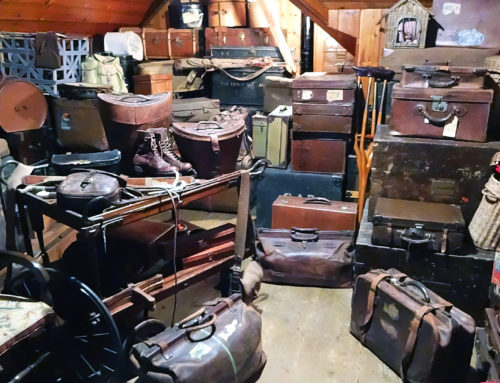Veterans Real Estate Expert Interview Podcast
The VA Loan is a special loan but it has many benefits that Veterans and Sellers should consider. In this episode we cover those with Angela Allen.
Veterans Real Estate Expert Interview Podcast Links
https://www.benefits.va.gov/homeloans
https://va.gov
https://www.americanwarriorinitiative.com
Veterans Real Estate Expert Interview Podcast
Adam Small: Hello and welcome to the Real Estate Marketing Podcast. I’m Adam Small with Agent Sauce, and with me as always is Doug Karr.
Douglas Karr: Hello, sir.
Adam Small: How are you doing today, Doug?
Douglas Karr: Well.
Adam Small: Well.
Douglas Karr: Yeah.
Adam Small: Very good. That’s very proper of you today. Very proper of you. Also, in the studio, we have a special guest and her name is Angela Allen, and she is a real estate agent, a realtor and she’s actually going to talk to us today a little bit about the American Warrior Initiative and helping vets get VA loans and how that can work well for the vet as well as for the agents. Hello today, Angela.
Angela Allen: Hello.
Adam Small: How are you?
Angela Allen: I’m doing wonderful.
Adam Small: Great. Great. Let’s just kick this off. Tell us a little bit about yourself, a little bit about your history, how you got started with real estate and maybe even what kind of led you down the path toward veterans?
Angela Allen: I was in education prior to real estate, and when I realized that you’re basically deemed to poverty …
Adam Small: What? We don’t pay teachers enough?
Angela Allen: No. That’s another story.
Adam Small: No? No? Oh, okay. A touchy one. I didn’t mean to upset you.
Angela Allen: I decided that I can work with educating people and that’s my niche. I like to teach people and with real estate, there’s still an opportunity to teach people and it’s the best career move I’ve ever made. As more enthusiastic I am, the higher I am paid.
Adam Small: Well, that works out well. How long have you been doing it?
Angela Allen: I’ve been doing this … Going on a little over two years now.
Adam Small: Two years. Okay. Great. Still a fairly new agent. Two years is a good time to get some experience, so how did you get into working with veterans and have you been doing that pretty much from the start?
Angela Allen: I started that at the very beginning. I’m very passionate about veterans because of the story that I have about my dad. My dad passed away when I was six, and he was deemed 100% disabled and I had to watch my mom and him try to figure out how to navigate the VA system. They’re not very good at advertising how to do things. If you’ve ever logged on to the VA website, you need a PhD to be able to decipher how to navigate.
Adam Small: Right.
Angela Allen: Long story short, we ended up losing our house and having to move to an apartment because of not knowing how to do things. When I heard that veterans needed housing and that there are loans and programs and things out there for them, and most of the veterans didn’t know that they qualified, I thought this would be an opportunity for me to go out and educate and to help veterans get into homes, but also educate other real estate agents and lenders to help reach the veterans and to get away from … There are several predatorial agencies out there that target veterans and they pretty much just take their money or take money from the agent itself. Yes, I’m a rabid dog when it comes to those type of things. I’m trying to get people to understand the difference. It shouldn’t cost a veteran money to apply for a loan, and it shouldn’t cost a veteran money to use a specific agent.
Adam Small: Okay.
Angela Allen: Trying to get the differentiation out there and to help other agents understand the difference.
Adam Small: Okay. Great. Part of that, you went through a program run via the American Warrior Initiative. Is that right?
Angela Allen: Yes.
Adam Small: Tell us a little bit about the American Warrior Initiative and what they’re doing? Then, let’s talk about what you learn at the program. Okay?
Angela Allen: Okay. What they’re doing is they’re trying to help real estate agents understand that working with the veteran is more than just a niche class. It’s actually an educating asset to work with them on a level that we wouldn’t work with other clients. A lot of veterans have moved a lot in their life.
Adam Small: Right. Right. That’s part of being in the service.
Angela Allen: That’s part of being in the service, so it’s really not a pleasure to move and you don’t know why they’re moving. Are they moving because they have to downsize because they became disabled? There’s a lot of things and it’s just to teach us how to be excellent and to provide a level of service that is something that we can be proud of and to say thank you without actually going, “Thank you for your service,” but to teach them that there are people out there that truly care and there’s a lady in Fairway that she decided to start this with a writer named Mr. [Parnel 00:04:19], and he’s an actual retired military person himself. There’s also the wife of the Navy SEAL, name escaped to me right now, but she wrote a book as well, but …
Adam Small: Are you talking about Chris Kyle?
Angela Allen: Yes. His wife.
Adam Small: Yeah. Her name would be Taya, right?
Angela Allen: Yes. Taya. Yes.
Adam Small: Taya Kyle. Right.
Angela Allen: They’ve all grouped together to try to educate people in the lending and in the real estate on how to help veterans and veterans’ families in the special things that a regular civilian might understand, and then how to relate to them and it’s a wonderful program. I went through it and you actually get a CE credit for it. It’s actually certified.
Adam Small: Oh, wow.
Angela Allen: Last time I went, I’ve been two times now. They give you a book and you actually get to meet Mr. Parnel and the money that they raised during this because you’re paying a fee. It goes to actually put into funds to actually help veterans. When I was starting, I think they raised like $45,000 the one year I did, and that put in a whole room extension for a veteran who needed care because his wife couldn’t lift him. He’s a double amputee and needed some extra special care with bathing and things like that. It’s more than just the CE. They’re actually bringing awareness and raising money to help veterans. I think they even bought a house. I think they even purchased a house, so I’d have to check the statistics on that, but it’s a wonderful program and they give back to the veterans in two levels, monetary and they equip agents like myself into handling transactions with veterans.
Adam Small: Great. Great. Now, we’ve been talking about veterans quite a bit. Does it work for active duty as well or does it just apply to veterans?
Angela Allen: Yes, sir.
Adam Small: It does work with active duty. Is there any sort of timeline on that? I remember when I was in, I did four years [inaudible 00:06:08]. Yeah. I don’t know that I could take advantage of veterans’ programs at that time. I had to wait until I actually got out, but of course, you’ve got other people that are there in 16 to 20 years and they were able to take advantage on some of those programs. Does it matter how long you’ve been in it?
Angela Allen: There’s a criteria and I brought a lot of the information on it, but pretty much, you can go on the website and you can check, but they are active duty.
Adam Small: Well, let’s go with what’s the website first?
Angela Allen: I didn’t write it down.
Adam Small: Okay. Well, we’ll have to hunt that down. Which website are you speaking? The American Warrior Initiative website or the …?
Angela Allen: No. I suggest you go to the actual VA website.
Adam Small: The VA website. Okay.
Angela Allen: Any VA website, the va.gov, because sir, like I said, I’ve mentioned before, there are predatory things and they have a lot of URLs that will look like the government websites or look like the Initiative website, and they take you down the rabbit hole you do not want to go into.
Adam Small: Right. Right.
Angela Allen: Actually check the VA website, the official VA website.
Adam Small: The government one, right?
Angela Allen: All you have to do is do VA loan mortgages through the VA website and it will pop up a whole bunch of information.
Adam Small: Great. Great.
Douglas Karr: Just for everybody, if you go to www.benefits.va.gov/homeloans.
Adam Small: Okay.
Douglas Karr: We’ll put them on the show notes as well.
Adam Small: Right. Thanks for looking that up, Doug. I appreciate that.
Douglas Karr: That’s why I’m here for.
Adam Small: I know. Looking up websites. That’s your job. All right. It does work with active duty, which is what I had asked you about before. Then, I cut you off with the website thing. You were going to say from a timeline perspective, working with active duty is … It’s okay. They’re more than happy to help you out?
Angela Allen: Yes. I have a little bit of information on active duty. If you’re now active duty illegible, they can be established after 90 days for continuous active duty and then upon discharge, a release from active duty illegibly must be established. You have to be at least 90 days and you have to have all of your information because my son-in-law, he’s active duty and they purchased one. They had to fill out … There’s forms you fill out and it shows your illegibility and you can’t just sign up and then instantly qualify.
Adam Small: Right. Right.
Angela Allen: You have to at least be 90 days in.
Adam Small: I did a VA loan on my first home, and I had to go down to the building downtown here and show them my DD214, and fill out a form and it took a little bit of time and not too long, but they gave it back to me or sent it to me or something. It’s been 20 plus years. I don’t remember now, but it was a process to go through. I recall that. We’re talking about VA loans and stuff, why don’t we talk about what exactly a VA loan is and define that for all the people out there and then for the real estate agent, how it’s different from some of the other loans and why it might be better to work with the VA loan as opposed to something in some circumstances?
Angela Allen: Well, the VA is a guaranteed government loan. It’s like a USDA loan. A USDA loan is a loan that you could get if you lived in the rural communities, and the government is basically saying that, “We’re going to back this one. If this person does not fulfill the requirements for this loan in a default,” the government will then step in and take over that loan.
Adam Small: Right.
Angela Allen: Then, it’s basically a government guaranteed loan.
Adam Small: From a banking perspective, it’s like a guarantee you’re not going to lose your money. Right?
Angela Allen: Exactly. Right.
Adam Small: Aside from having to be a veteran, are there any restrictions or things that make a VA loan a little more complex to work with from a real estate agent perspective?
Angela Allen: You couldn’t buy a dive, so to speak. It would have to have some type of things, but now starting July 1st, there’s a new thing where you can buy a rehabilitation loan and a rehabilitation loan, which we all know, it goes up to like 100, 103% of the value of the home for repairs. There’s some math involved. Let’s say they wanted a house that they’re asking 150,000 and it’s a price of like 200,000 or more, then that amount in between the asking price that you purchased it for to the appraised value, they can use that amount to repair the home.
Adam Small: Oh, nice.
Angela Allen: If that number does not match, it’s a mathematic number, the appraised perceived value after the repairs are done does not match the cost of the loan that they’re asking. Of course, they’re going to say no, but any bank would say no for that.
Adam Small: Right. Right. Well, it’s got to make sense in here.
Angela Allen: Right.
Adam Small: Walking to 100,000 and put a $10 million marble slab or something down, right?
Angela Allen: Exactly. There’s some normal parameters in it. It’s really no different than a regular loan, but they’re just going to be a little bit more diligent, but that diligence is going to happen before it’s approved.
Adam Small: Right. Right. Right. Well, that’s good. Do all the hard work up front, right?
Angela Allen: Yes.
Adam Small: What are some od the challenges that veterans face when they’re trying to become a homeowner that are unique to them?
Angela Allen: Well, everyone knows that there’s way more buyers and sellers, when you look at the form that says “loans available,” that the seller is willing to undertake for purchasing the home. Not everyone will check that VA loan box. That means that there’s less inventory for a veteran than there is for a regular civilian.
Adam Small: What I hear you saying is that when somebody is selling a home, they can choose to not sell it to a veteran if that veteran is going to use a VA loan.
Angela Allen: That is correct.
Douglas Karr: Wow.
Adam Small: Yeah.
Douglas Karr: I didn’t know that.
Adam Small: I didn’t either. That’s just astounding to me, and it’s even more astounding to me that anybody would choose to say, “Well, I’m not going to sell it to a veteran because they’re a veteran.” What I mean by that is if I’m trying to sell the house, I’m going to take whatever is coming and take the best offer if it’s reasonable and it’s not going to matter to me who’s buying it because I’m moving on.
Angela Allen: Right.
Adam Small: Right? It just astounds me that some will choose not to deal with veterans.
Douglas Karr: Well, I’m guessing it might not be the veteran in as much as the cost of the house too and what it’s valued at and everything else because the VA loan has absolute limitations as far as how much you can get for the …
Adam Small: The capital.
Douglas Karr: Yeah. If you had another home that maybe wasn’t outside of the VA loan and you had a huge down payment for a house, you could still get the house with a conventional loan, but would you be able to get that with VA loan?
Angela Allen: The VA loan is 100% finance, so you wouldn’t have to put any money down.
Douglas Karr: Right. As long as the value of the house, and that type of thing.
Angela Allen: Right. That’s where the appraiser comes in. That’s all numbers. That’s all numbers.
Douglas Karr: That’s what I’m saying. If you were in some …
Adam Small: $10 million home.
Douglas Karr: Yes. Some richy neighborhood or whatever and you were selling your house above what it was valued at trying to get that, you’re not going to be able to get that.
Adam Small: You’re not going to get a VA loan on that. Yeah.
Douglas Karr: Yeah. You might sucker somebody else, but that’s part of the good thing of the VA loan is that they’re going to absolutely check the value of the house and make sure that it’s …
Adam Small: Right.
Angela Allen: That’s true with all the other loans too.
Douglas Karr: Yeah.
Angela Allen: The only time they don’t check is if it’s a cash sale.
Douglas Karr: Right.
Adam Small: Right.
Angela Allen: The VA loan is actually … It’s a benefit. It’s a veteran’s benefit, and it’s like a person that is given free dental or 401K money or a pension money. Then, that’s the miscommunication of what people misunderstand it to be. They think that VA loan is like veterans and civilians tend to think it’s like some type of welfare or some type of gifts because they’re poor and it’s not. It’s their benefit. They earned that. It’s part of their pay.
Adam Small: Their income doesn’t affect that at all.
Angela Allen: It’s guaranteed.
Adam Small: Really the only time the income affects it is are they able to in fact afford a VA loan of that amount? It’s not a matter of A, you make too much money for a VA loan or B … Right.
Angela Allen: Right. It’s based on your income. The VA knows how much money you make because it’s all pay grade. They know exactly how much and then they just tell you the criteria you can look between here and here.
Adam Small: Right. Right. Just like any other loans.
Angela Allen: That is correct.
Adam Small: Great. What are some of the benefits of VA loan mortgage for … A VA loan for the active duty member or the veteran. Let’s talk about that, and then also from a real estate perspective working with that type of person.
Angela Allen: The advantages of the active member is now you can actually … If you have a house and you’re being transferred, they have a program that allow you to roll, so you do it like a dual closing. You’d close on one house and you’d turn around and close on the other. Years back, you would have had already sold the other home before you could even apply for the VA.
Adam Small: Oh, okay.
Angela Allen: This way, since it’s 100% finance, it also keeps their out of pocket cost down and it just helps them with being able to relocate and relocate fast. If you know how to handle VA loan and you know how to handle a VA purchase agreement, you can pretty much streamline those. Some lenders can do them between as soon as 21 days. I’ve worked with a lender. We had to get a veteran move fast and we had it in 15 days. That’s where the education of handling a VA mortgage comes into play.
Adam Small: Right. For the veteran, you say it’s 100% finance, which is great because especially the military pay, sometimes it could be hard to accumulate a down payment. What about closing cost? Can you roll the closing cost into the loan as well?
Angela Allen: Yes, you can. There’s a percentage. There’s always a number and there’s a percentage and usually what we do … What I’ve had success in doing is writing it for that amount above the purchase price, and then you also have to be aware of what you suspect the appraisal price is going to be because sometimes you have to sweep numbers a little bit, so you have to be very careful about knowing what you think the house is going to appraise with a good CMA. I’ve even send letters to the selling agent explaining that … [inaudible 00:16:01]. It’s pretty much ceremonial. This is a guaranteed letter and I’m letting you know that this one is going to go through. It’s not a gamble, and to even have the down payment as low as the earnest money, $100.
Adam Small: Right. Right.
Angela Allen: Then, by the time you figure out the cost of what they have to do, the appraiser, some lenders will make the veteran pay the appraiser, which is about $550. I make sure that the lender … I make sure [inaudible 00:16:25] lenders that we’ll take that 550 out at closing, so that’s not something upfront and now that it’s not mandated, that you have to have an inspection. It’s always good to have one, but it’s not mandated that you have to. They need that about 300 to $500 for that inspection depending on whether there’s well water or septic. You can always put those cost into above the purchase price, so that the veteran will get that money back at closing. I found the magic numbers around $3,600 seems to be the magic number. Write the offer for about $3,600 above the asking price and then use that for the veteran. Then at closing, they will get their five … If they’d have to pay upfront, and their inspection money, that way, they get that back at closing.
Adam Small: Right. Right. Right.
Angela Allen: They’ll even get their earnest money back at closing, so that that way …
Adam Small: They’re not [crosstalk 00:17:15] anything out of pocket? It’s …
Angela Allen: Exactly. They might a little bit upfront depending on some …
Adam Small: It’s temporary though.
Angela Allen: Yeah. It’s temporary, but they’ll get that. Nothing is more exciting than seeing them get their money back at closing because they think they might have sold something to get that money to go upfront, but it’s just a matter of numbers. You have to know your numbers, and the key is working with a really good lender that knows how to do VA loans, not just VA friendly. I suggest you actually interview the lender and make sure that they actually know how to handle veterans. I won’t drop any names, but there’s a couple of lenders out there that will actually give coins to the veteran when they complete the transaction. If you’re a veteran, you understand the importance of the coin.
Adam Small: Right.
Angela Allen: They also know how to work with the veteran and how to help the agent write the offer, so that the offer is good and will fly with the VA administration.
Adam Small: Good. Well, that’s great. Okay. What other kind of programs are available for veterans or those that are on active duty?
Angela Allen: They change and they vary. I strongly suggest you connect with the local VA administration, American Lead Gen and the VFW. James Morrison, not the musician, he’s like third in line with the governor of Indiana and he has a program that’s trying to bring veterans to Indiana and if you send his administration a letter or an email and you have a company here in Indiana that’s willing to pay the moving cost of a veteran from another state to Indiana, you let them know. They will reimburse that company, the moving cost and relocation cost to do that.
Adam Small: Wow.
Angela Allen: That even includes if they lost any money on the sell of their home, transportation cost and down payment assistance because sometimes you have to pay for the appraiser and things like that. That moving company, not moving company, but the employer will be reimbursed up to a certain amount of stipend amount, but that’s through James Morrison. Then, there’s also some different programs that the key is just to connect with the American Lead Gen and the VFW, but there are some other programs that are here in Indiana and exclusive to bring veterans and able to actually help them move.
Adam Small: Right. There are probably some in every state as well.
Angela Allen: There is.
Adam Small: I think that the key point, which you just said, they always contact the American Lead Gen or the VFW and talk to them because they [crosstalk 00:19:35] quite a bit information about that.
Angela Allen: Talk to them in person. Talk to them in person, and please avoid looking on online because like I said, there are so many scams out there and they target veterans and they will seem legit until you’ve lost everything.
Adam Small: What are some of the … Go ahead.
Douglas Karr: Well, I was going to say it’s probably a good idea that every county has a veterans service officer too.
Angela Allen: Yes.
Douglas Karr: It’s probably a good idea for you to look that person up and ask them for recommendations as well.
Adam Small: Right. Right. I was going to ask you, you’ve mentioned scams and predators a couple of times here. What are some of the indicators or the the tells that this is a scam and not legitimate?
Angela Allen: You can pretty much … Any 501c3 can check online what their status is. Supposedly, you can check to see what their pay is. That is if they put it up there, but also you can check. Just type it in. There’s watchdog websites and everything, and just type in the website and just say, “Is there any scams or anything like that?” There are some of them that they market themselves as being from USAA, and they’re not. They’re not even affiliated with it, but it’s an actual lending company and that will tell the veteran, “If you qualify with us and we get to the VA loan, we will partner you with an agent.”
Angela Allen: Well, that agent, not knowing who’s contacted, and they will help the veteran get in the home. Well, it’s embedded in the contract that you don’t even see because it’s signed between the lender and the purchaser, so when you get to closing, you’re out $1,900 or more as an agent just so that veteran can get $250 at closing. I’ve had two of those happen to me because they claim they’re USAA, and they actually sell the loans before they even get to closing to another company that’s not even in the United States or …
Adam Small: You as the agent aren’t getting your commission? Is that what you’re telling me?
Angela Allen: That’s correct. We’re forfeiting $1,900 to our commission because they’re considering that as a referral fee, and the veteran does not know that they went on to this link that looks like it says USAA, and it’s not. It’s another company. It’s actually ran by a real estate agent who is doing this, and I tried to fight it and I couldn’t. By me helping a veteran, I had to forfeit two times in excess of $1,900.
Adam Small: That’s outrageous. As an agent, what can you do to prevent that from happening to you?
Angela Allen: Make sure that you have the communications with the lender to ask upfront, “Is there any contract or anything that you’ve entered in with the buyer that shows that the agent has to share any commission? Is this considered a referral or any type of referral fee involved?” Ask them to show you in writing if there is and then actually read it because you don’t know. You just think that you’re getting a phone call because you’ve done such a great job at helping another veteran that it’s an honor that they’re asking you to do it and there’s really no forms until you get to closing.
Adam Small: Wow. That’s just outrageous.
Angela Allen: It’s true.
Adam Small: Yeah. All right. Great. Doug, you got any other questions?
Douglas Karr: I don’t. I found a cool thing on the VA site though. They actually have blogs on the US Department of Veterans Affairs, so they had 10 facts that people didn’t realize about a VA loan that are pretty interesting. Like you said, no down payment, but the other one has no mortgage interest or insurance.
Angela Allen: But you don’t have to pay the PMI.
Adam Small: The PMI. Right.
Angela Allen: The PMI.
Douglas Karr: Basically, you can get 30,000. The average person get like $30,000 more home.
Adam Small: Because they’re not having to cover that PMI.
Douglas Karr: Yeah. Because [crosstalk 00:23:16].
Angela Allen: The PMI’s average is like $151 a month usually.
Adam Small: Yeah. Wow.
Douglas Karr: You said that you can use the benefit over and over again. The benefit never expires, so arriving spouses may be illegible. Loan rates are typically lower. Of course, you said VA loans are available from local lenders. You talked about refinancing, so you covered all of these. Then, there’s lenient guidelines for lower credit scores, but [inaudible 00:23:43] for foreclosures, funding fee waivers and their last one was that you can buy a condo as well with [crosstalk 00:23:53].
Angela Allen: Yeah. Condos and they’re opening it up to some types of manufactured homes as long as they’re anchored down. Then, there’s also a clause too at the inspection and everything that’s standard. If they had to get out of it because the appraiser or lending or something else happened, it’s a guarantee to get their earnest money back, if there was any, an earnest money and that’s something that’s enforced by the VA.
Adam Small: Right. Interesting. If the deal falls through for certain reasons, then they can get the earnest money back?
Angela Allen: That is correct.
Adam Small: Nice.
Angela Allen: It’s like an extra layer of protection.
Adam Small: Right. One more question before I ask … Two more questions, I guess. One, can you use a VA loan for a second home? A lot of retired people have a summer home in Florida or Phoenix or something like that, so can you use a VA loan on a second home, second residence?
Angela Allen: I believe you can if you can show that you’re using that way. The thing is I haven’t read all the new guidelines to the effect of July.
Adam Small: Right. [crosstalk 00:24:59] July. Right.
Angela Allen: Right.
Adam Small: Okay.
Angela Allen: I know that there’s something in there because I know that there’s some military personnel that have to live in two different places, but I know that there are some type of provision.
Adam Small: That allows for that?
Angela Allen: Yes.
Adam Small: Okay. Great. Then, if other agents want to get involved with helping out veterans or active duty military, what are some of the things that they can do?
Angela Allen: Go contact your local veterans administration person, sit down and have a one to one. They would love to sit down and talk to an agent and explain the benefits of a VA mortgage.
Adam Small: Okay. If they wanted to go through the same program that you went through with the American Warrior Initiative, just look up the American Warrior Initiative online?
Angela Allen: Yes, or contact at their local Fairway. I’m not endorsing or anything, Fairway, but they do have their great program. You just contact any Fairway mortgage representative and they’ll connect you to the link.
Adam Small: Okay. Great.
Douglas Karr: I did some searching on the vacation home thing. Technically, it’s supposed to be a primary residence but they said that if your primary residence is paid off, you can absolutely use a VA loan on a second home.
Adam Small: Oh, okay. Great.
Angela Allen: They knew there was a provision.
Douglas Karr: Yeah.
Adam Small: Yeah. All right. Doug, you got anything else to add?
Douglas Karr: No. You were talking about some of the changes. I’m curious, how often does the VA loan program change? Was it every few years or is it …?
Angela Allen: Not as big a deal as this year.
Douglas Karr: Okay.
Angela Allen: Usually the change is … Usually, they remove things, but this year, they added a lot of benefits that I thought was cool because they allow to refinance. They’ve allowed more for refinancing, building new homes, the rehabilitation, the adding of the condo and certain type of manufactured homes depending on … Because if you buy a plot of land, that type of thing where it has like a foundation. Before, it didn’t matter what it was. They didn’t allow that at all, so there’s a lot of new things and I strongly suggest summarizing that and reading it. It’s a good boring read, but it helps you be able to help more veterans find more homes. It opens up the market more for them.
Adam Small: Great.
Douglas Karr: I’ll tell you one that probably not a lot more people have experienced, but I went through, of course, a wonderful divorce when I lost my home.
Adam Small: That happens.
Douglas Karr: It was a VA loan, and they did what it was called a VA Loan compromise sale, which was another wonderful benefit because if it was a typical bank, I would have gone in the collections and everything else and a VA compromise sale basically said, “Hey, the VA will say you can get rid of this home as long as you give this much money for it.” We were able to do a quick sale and get out from under it and we just bought the home, so it was devastating to us.
Adam Small: Right.
Douglas Karr: It’s just another one of those great things about the program that you don’t realize, and realtor should realize that too. In fact, if they have a family that’s in trouble financially or whatever and they need to get out from it, that’s a possibility there.
Adam Small: The VA is going to work with them.
Douglas Karr: Yeah.
Adam Small: Right. Right. Great. Angela, any final thoughts?
Angela Allen: I don’t have any final thoughts at all right now.
Adam Small: All right. Well, great. Thanks for listening, everybody. If you have any questions and want to contact us, you can contact us at info@agentsauce.com. Thanks for listening and have a great day.







